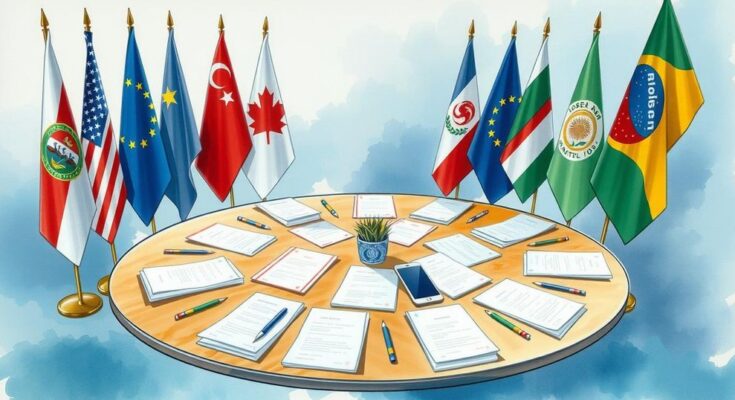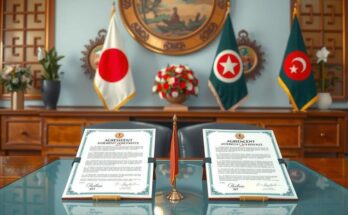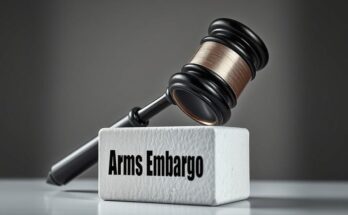In a statement to the IAEA Board, the Quad commended the Agency’s efforts regarding Iran’s NPT Safeguards Agreement but expressed concern over Iran’s ongoing noncompliance and refusal to clarify outstanding nuclear issues. The Quad urged Iran to cooperate fully to avoid consequences, citing the potential for serious implications if Iran does not change its current course. The need for transparency and accountability in Iran’s nuclear program remains urgent and vital for global non-proliferation efforts.
At the March 2025 meeting of the International Atomic Energy Agency (IAEA) Board, UK Ambassador Corinne Kitsell delivered a statement on behalf of France, Germany, the United Kingdom, and the United States, collectively known as the Quad. The Quad praised the IAEA’s ongoing efforts to engage Iran regarding its Nuclear Non-Proliferation Treaty (NPT) Safeguards Agreement, highlighting the importance of clarity on Iran’s nuclear activities.
The Quad expressed deep regret over Iran’s continuous refusal to clarify issues related to detected nuclear materials in undeclared sites. For over five years, Iran has not complied with legal requirements to provide information, leading to an inability to confirm that its nuclear program is peaceful. The Quad emphasized that such noncompliance can no longer go unaddressed and urged Iran to cooperate fully to avoid implications of being found in noncompliance.
The IAEA’s recent report noted concerning activities at specific undeclared sites, such as Lavisan-Shian, where the lack of cooperation from Iran has stymied progress in resolving outstanding issues. Notably, Iran has not supplied credible technical information, prompting ongoing scrutiny from the IAEA regarding the potential presence of undeclared nuclear material.
The report also indicated that Iran is not complying with legal obligations to provide design information for new nuclear facilities, as mandated by modified Code 3.1, thus raising alarms about their nuclear intentions. Furthermore, Iran’s rejection of additional inspectors impacts IAEA verification efforts, sowing further distrust regarding their nuclear program’s nature.
There are growing concerns about Iranian officials’ claims of possessing capabilities to develop a nuclear weapon, along with calls for a shift in nuclear policy. This escalates worries about Iran’s commitment to its safeguards obligations. The Quad urged Iran to cease delaying tactics and fulfill its commitments to ensure program transparency and cooperation with the IAEA.
Squarely, the Board reiterated the need for enhanced IAEA pursuits to gain clarity on Iran’s nuclear program, urging Iran to adhere to issued resolutions and cooperate. It highlighted that a forthcoming comprehensive assessment is necessary to determine compliance and will be a crucial step in addressing the issues at hand.
The Quad’s patience is noted as limited, stressing that without concrete progress, the Board may be necessitated to find Iran in non-compliance. Their mission ultimately aims to uphold international security and the integrity of non-proliferation efforts, as the gravity of Iran’s nuclear advancements continues to require urgent and comprehensive oversight. The Quad concluded by thanking the IAEA and calling for transparency in the reporting of these ongoing issues.
In summary, the Quad’s statement to the IAEA Board underscores serious concerns about Iran’s non-compliance with its NPT Safeguards Agreement. Their relentless request for transparency and cooperation from Iran reflects the heightened urgency surrounding nuclear regulatory oversight. The IAEA’s inability to verify Iran’s nuclear program due to a lack of cooperation remains a focal point, as it could lead to consequences for Iran if progress is not made promptly. The situation necessitates ongoing scrutiny and support for the IAEA’s mission to ensure the safeguards obligations are met.
Original Source: www.gov.uk




